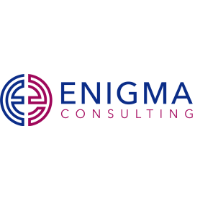Brexit Drives Financial Institutions from UK to EU License
20-03-2020 | treasuryXL | Enigma Consulting
Since the UK left the European Union on January 31st, Brexit is a fact. Currently both sides are in a transition phase that lasts until the end of this year. For now, it remains unclear how the future relationship between the EU and the UK will be shaped after 2020.
It is therefore important that financial institutions prepare themselves, as from 2021 onwards, bottlenecks can arise in cross-border services between the EU and the UK.
On the 31st January 2020 the UK left the EU on the basis of the agreed withdrawal agreement. This prevented a no-deal Brexit on that date and led to the transition period until the end of 2020. During this period, EU law will continue to apply to the UK in all areas, including the financial passport rights that are part of the Single European Payment Area.
At the same time there is uncertainty about the situation after the transition period. In the coming period the EU and the UK will negotiate the design of the future relationship, including financial services. The basis for this is the political declaration that the EU and the UK agreed upon as part of the withdrawal agreement. Starting point for financial services is the possibility to make so-called EU-equivalence decisions with regard to third countries.
What is meant by equivalence?
Within the European Union, a single market exists that guarantees the free movement of goods, capital, services and labour. These four freedoms make life easier for international actors on this single market. It allows financial institutions to offer their services to more than 450 million consumers, living in any EU member state.
Although Brexit results in the UK leaving the EU, there might be a last resort. The EU allows companies that are not based in any of its member states to access the single market if the legal regime for a certain sector in a third country is declared to be equivalent.
Act rather than react
It has been agreed that the EU will carry out equivalence assessments with the UK (and vice versa) in the first half of this year. These assessments are aimed to finished in June this year.
However, it is still unclear which UK sectors the EU will (possibly) declare equivalent, and if so, when that happens. Even if UK regulations and supervision were to be declared equivalent in many different sectors, it would not correspond to the high level of market access that UK financial institutions currently have to offer their services in the EU. The scope of the equivalence regime is limited and excludes most of the core banking and financial activities. Deposit-taking, lending, payment services and investment services will not be granted access to the European single market without having an EU license.







